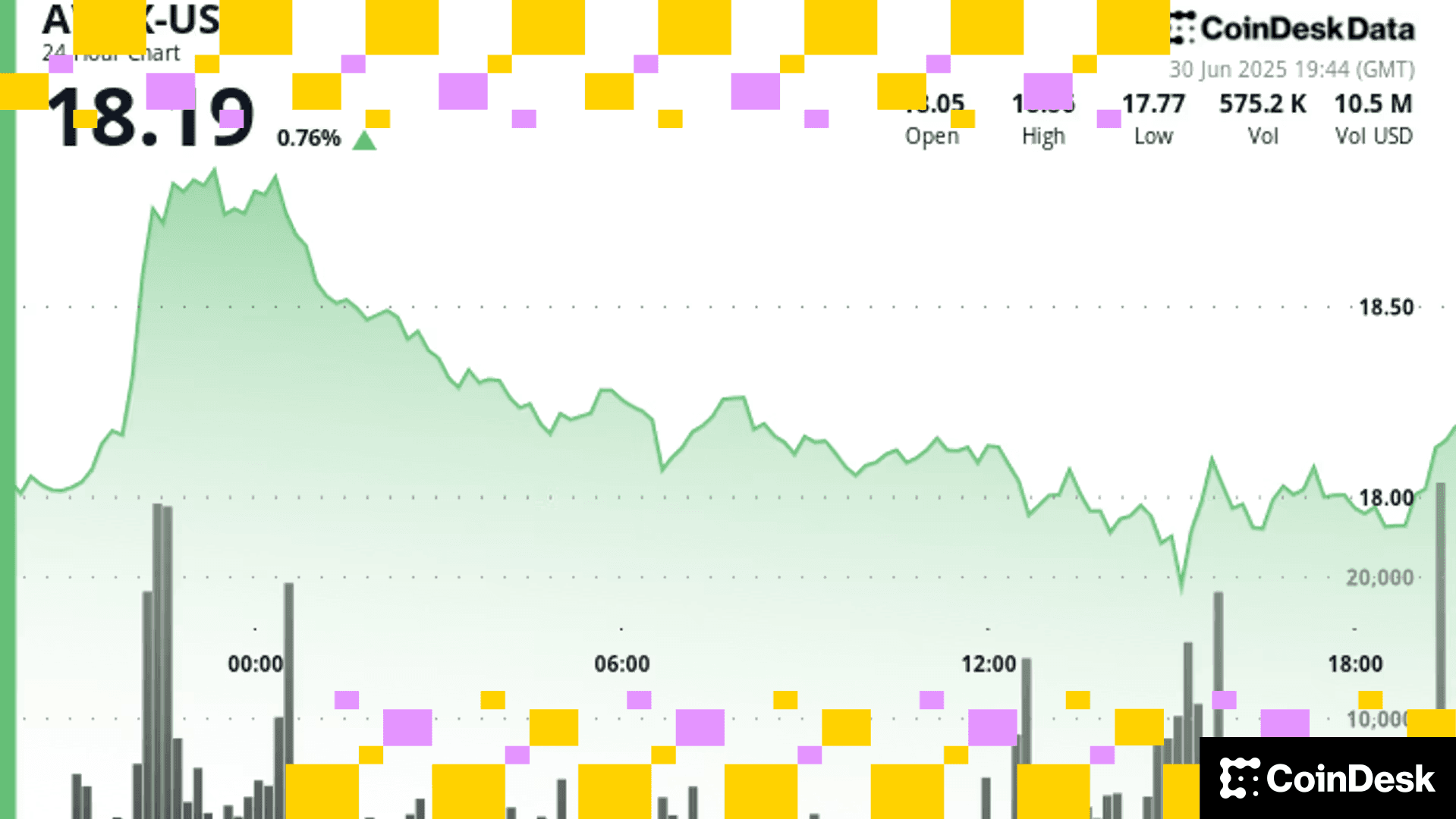Former CFTC Chairman: SEC Was 'Absolutely Right' to Sue Terraform Labs, Do Kwon
Timothy Massad, now a research fellow at Harvard’s Kennedy School of Government, said U.S. bank regulators have the ability right now to create a framework that could license stablecoin issuers.
The U.S. Securities and Exchange Commission (SEC) is right to go after stablecoin issuer Terraform Labs and founder Do Kwon, said Timothy Massad, former chairman of the Commodity Futures Trading Commission (CFTC).
“They [the SEC] were absolutely right to make these charges,” Massad, now a research fellow at Harvard University’s Kennedy School of Government, said on CoinDesk TV’s “First Mover” on Friday.
“When you solicit people to invest in a token promising them a 19% to 20% return, that’s a security,” said Massad.
This week, the SEC filed a complaint against the Singapore-based crypto company and Kwon, claiming they mislead investors about the terraUSD (UST) algorithmic stablecoin. According to the complaint, Terra and Kwon engaged in fraud, the sale of unregistered securities and the sale of unregistered security-based swaps. The Terra ecosystem collapsed in mid-2022, with reverberations subsequently felt throughout the crypto industry. Kwon is being sought by Interpol.
The SEC’s complaint further alleges Terra misled investors by misrepresenting the health and stability of UST, which was supposed to be pegged to the U.S. dollar. Terra's LUNA token played an important role in maintaining the price of the UST stablecoin.
“UST’s price falling below its $1 peg and not quickly being restored by the algorithm would spell doom for the entire Terraform ecosystem, given that UST and LUNA had no reserve of assets or any other backing,” the filing stated.
“When you market LUNA as something that can be obtained by exchanging [UST] and that the value of LUNA will also increase depending on the various actions that are taken … that's also a security,” Massad said.
Read more: SEC Sues Terraform Labs, Do Kwon for Misleading Investors on TerraUSD Stablecoin
Massad, who believes the SEC and CFTC can work together on regulating crypto by using a self-regulatory organization (SRO), said he thinks there are areas of the industry that need clarity and a comprehensive framework. However, it may come down to reading between the lines.
“The industry often complains about lack of regulatory clarity, but you just need to have good lawyers who can read the law and say, ‘Yeah, that’s probably a security,’” he said.
No need to wait on stablecoin regulation
Massad said investors don't have to wait for Congress to act on regulating stablecoins.
“While legislation would be great, we don't need to wait for legislation,” Massad said, noting he co-authored a white paper on that very topic in August that was published by the Brookings Institution's Hutchins Center.
“Bank regulators have the ability today to create a framework that could license stablecoin issuers [and] require that the tokens be fully backed by cash or Treasury securities,” he said. If bank regulators so choose, he added, they could impose requirements for capital and liquidity, including how, where and what chains stablecoins are traded on, while ensuring that “those chains have adequate resilience and procedures.”
Read more: Jump Crypto Is Unnamed Firm That Made $1.28B From Do Kwon’s Doomed Terra Ecosystem: Sources
Mais para você
Exchange Review - March 2025

CoinDesk Data's monthly Exchange Review captures the key developments within the cryptocurrency exchange market. The report includes analyses that relate to exchange volumes, crypto derivatives trading, market segmentation by fees, fiat trading, and more.
O que saber:
Trading activity softened in March as market uncertainty grew amid escalating tariff tensions between the U.S. and global trading partners. Centralized exchanges recorded their lowest combined trading volume since October, declining 6.24% to $6.79tn. This marked the third consecutive monthly decline across both market segments, with spot trading volume falling 14.1% to $1.98tn and derivatives trading slipping 2.56% to $4.81tn.
- Trading Volumes Decline for Third Consecutive Month: Combined spot and derivatives trading volume on centralized exchanges fell by 6.24% to $6.79tn in March 2025, reaching the lowest level since October. Both spot and derivatives markets recorded their third consecutive monthly decline, falling 14.1% and 2.56% to $1.98tn and $4.81tn respectively.
- Institutional Crypto Trading Volume on CME Falls 23.5%: In March, total derivatives trading volume on the CME exchange fell by 23.5% to $175bn, the lowest monthly volume since October 2024. CME's market share among derivatives exchanges dropped from 4.63% to 3.64%, suggesting declining institutional interest amid current macroeconomic conditions.
- Bybit Spot Market Share Slides in March: Spot trading volume on Bybit fell by 52.1% to $81.1bn in March, coinciding with decreased trading activity following the hack of the exchange's cold wallets in February. Bybit's spot market share dropped from 7.35% to 4.10%, its lowest since July 2023.
Mais para você













